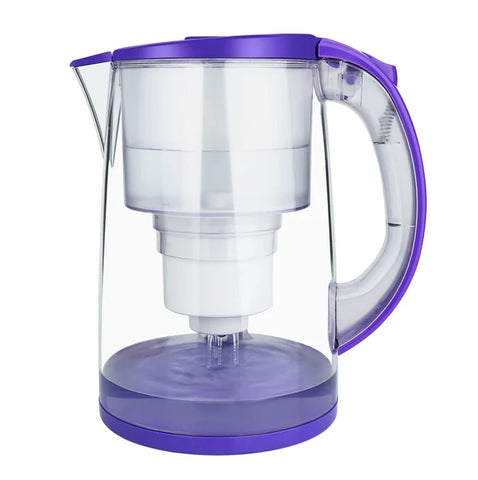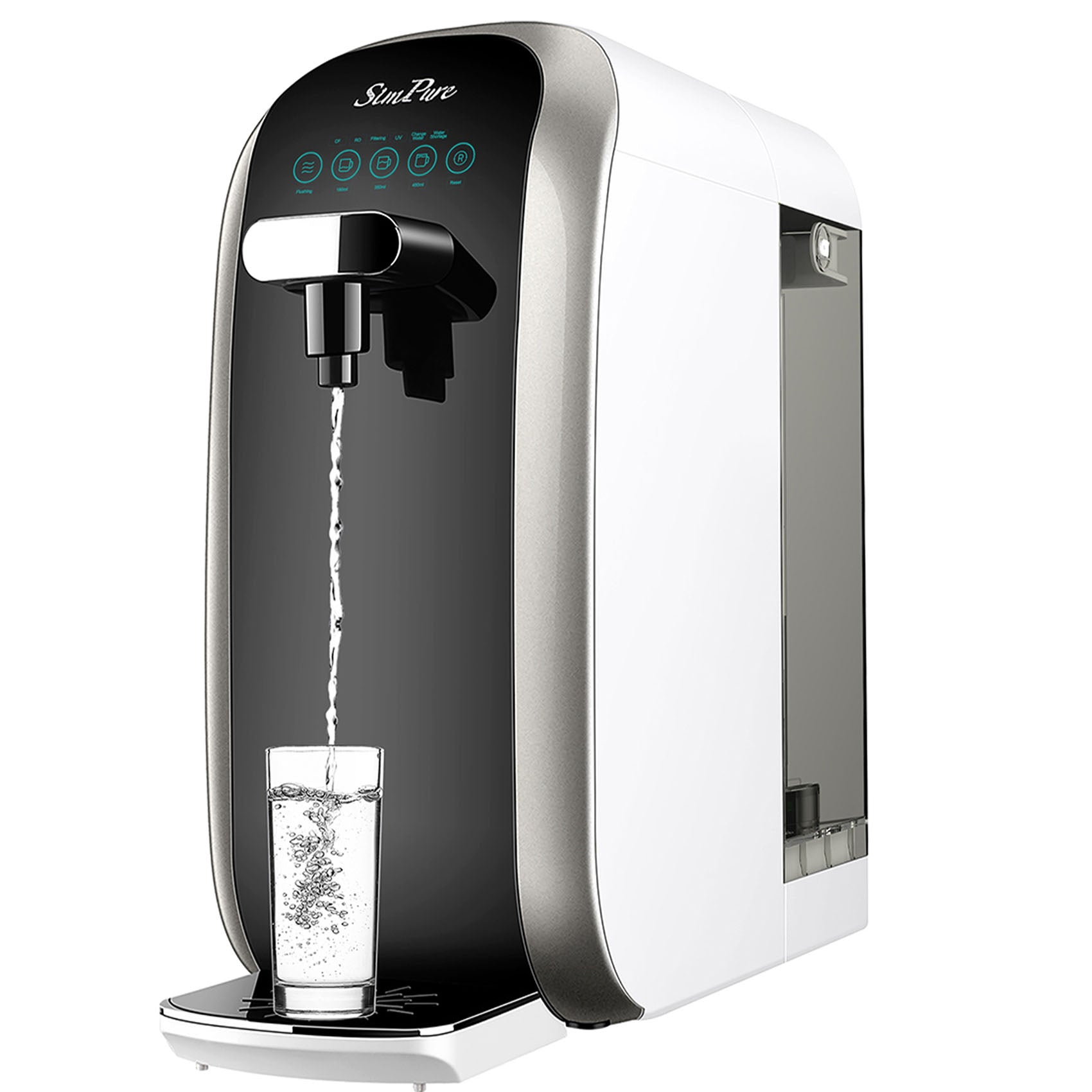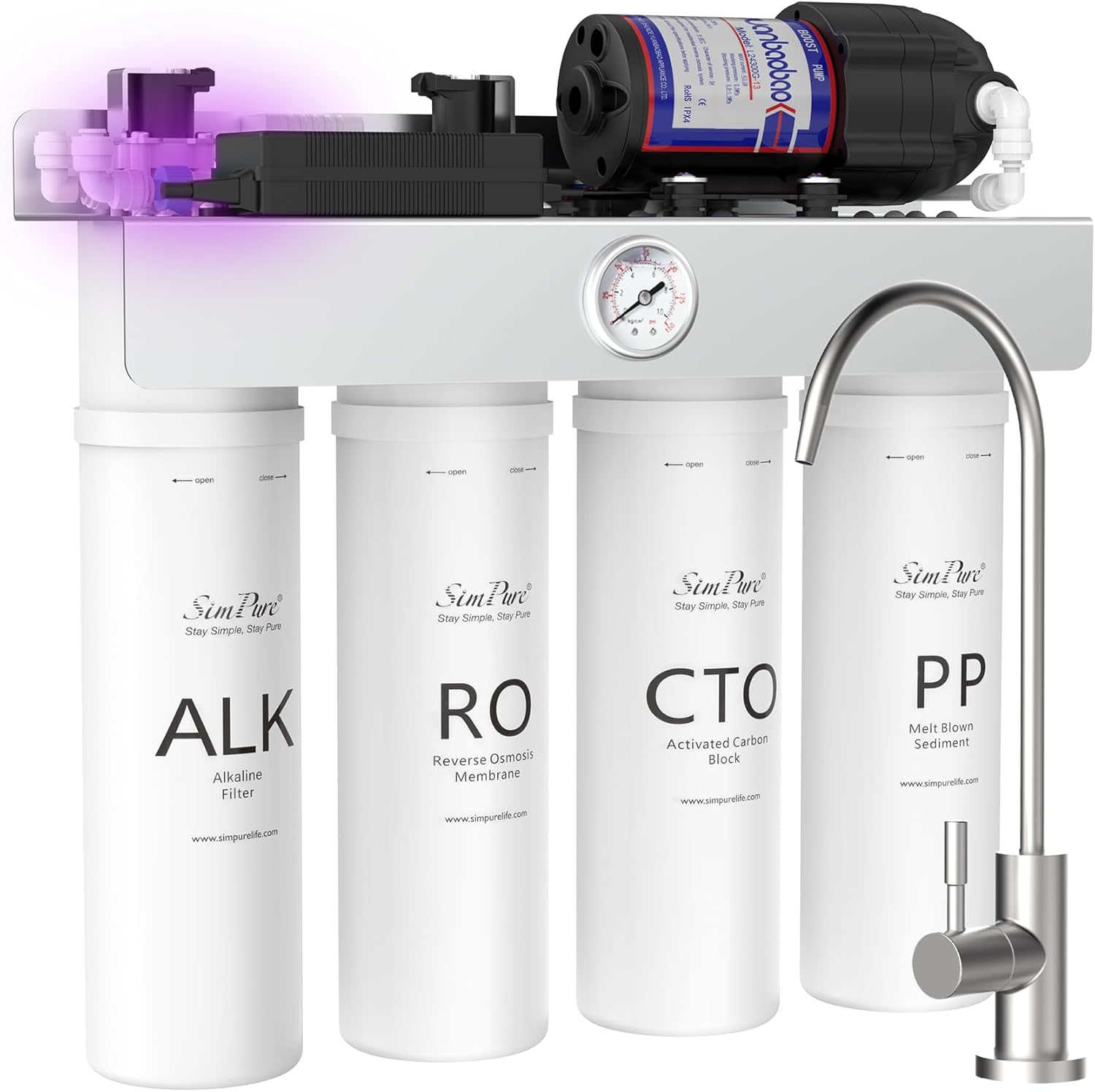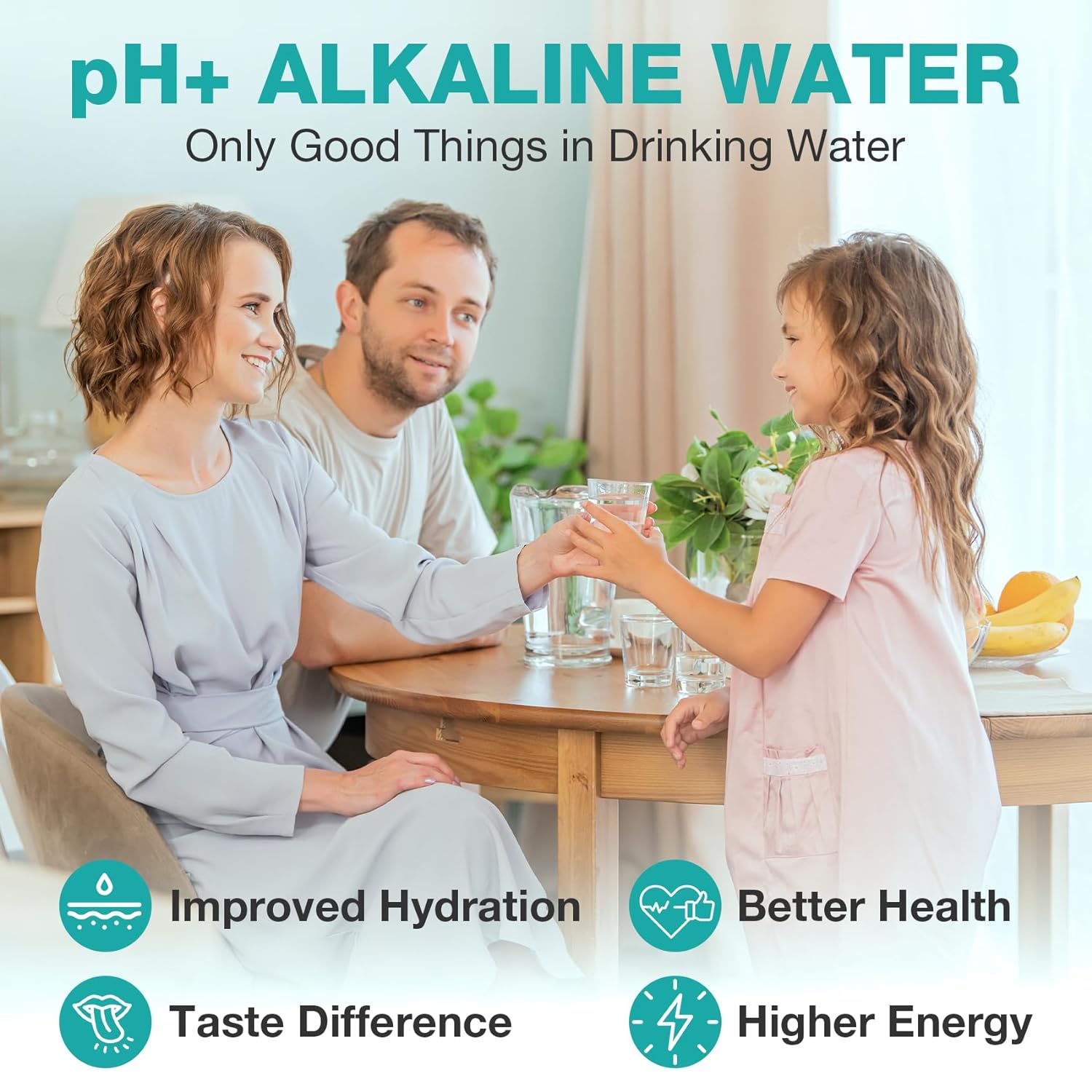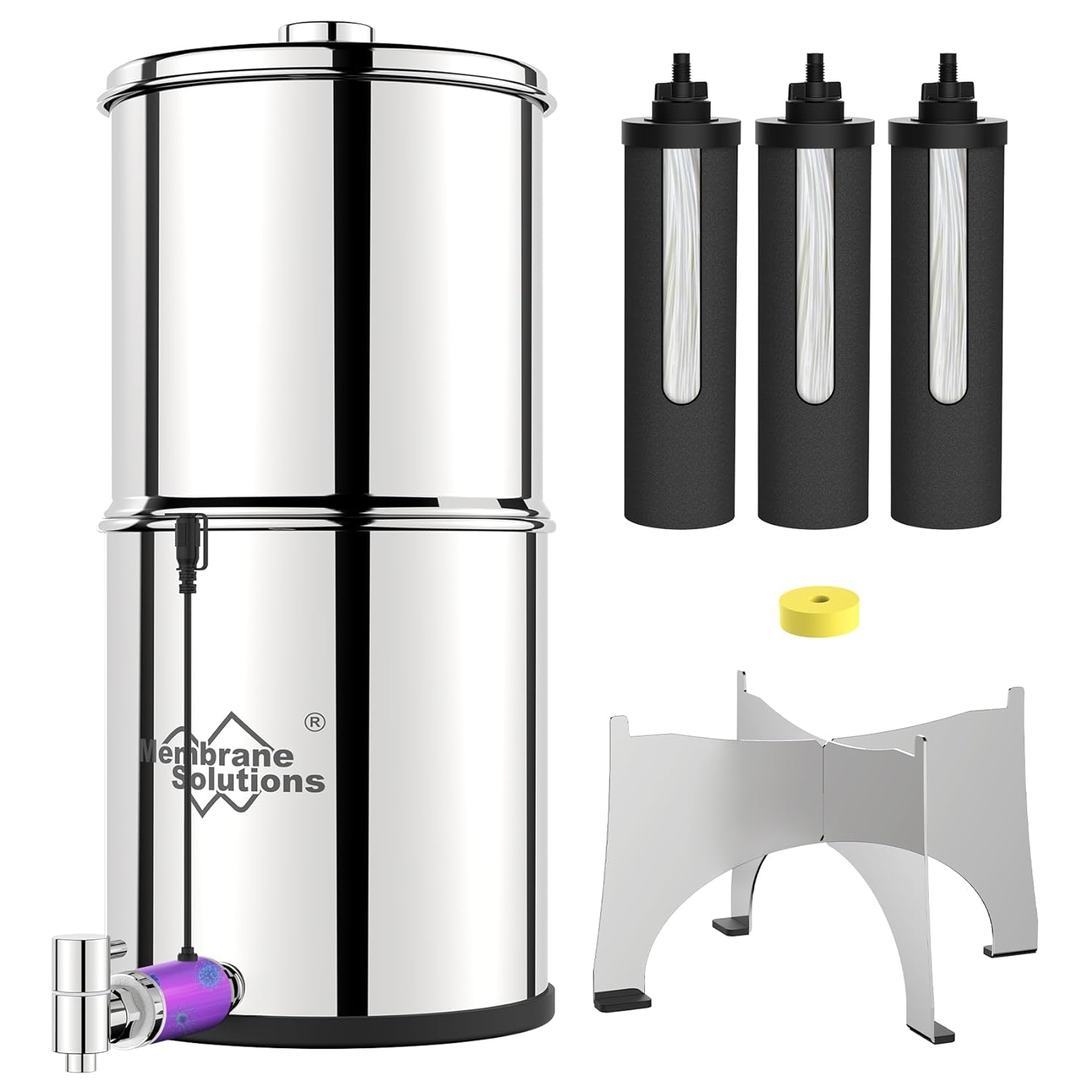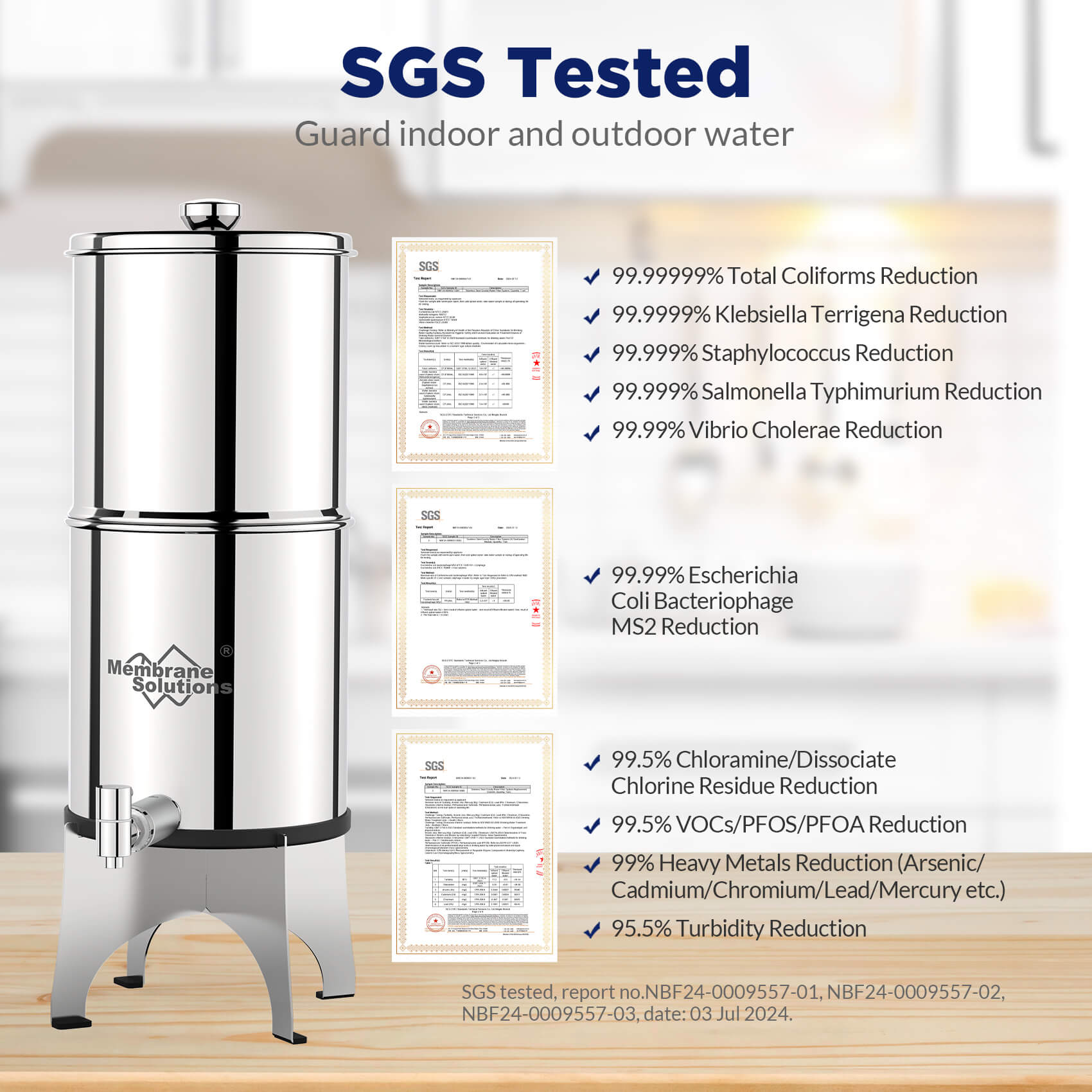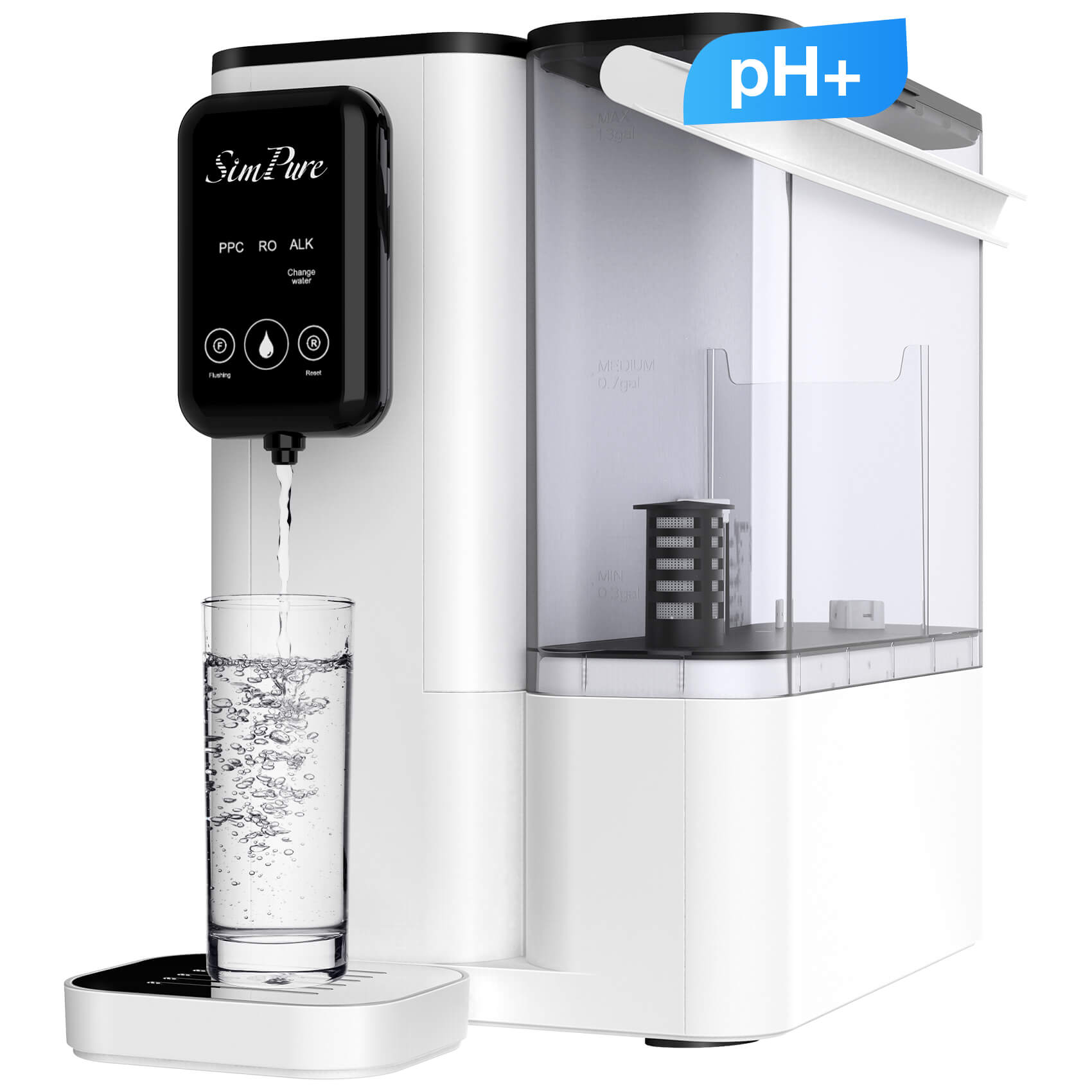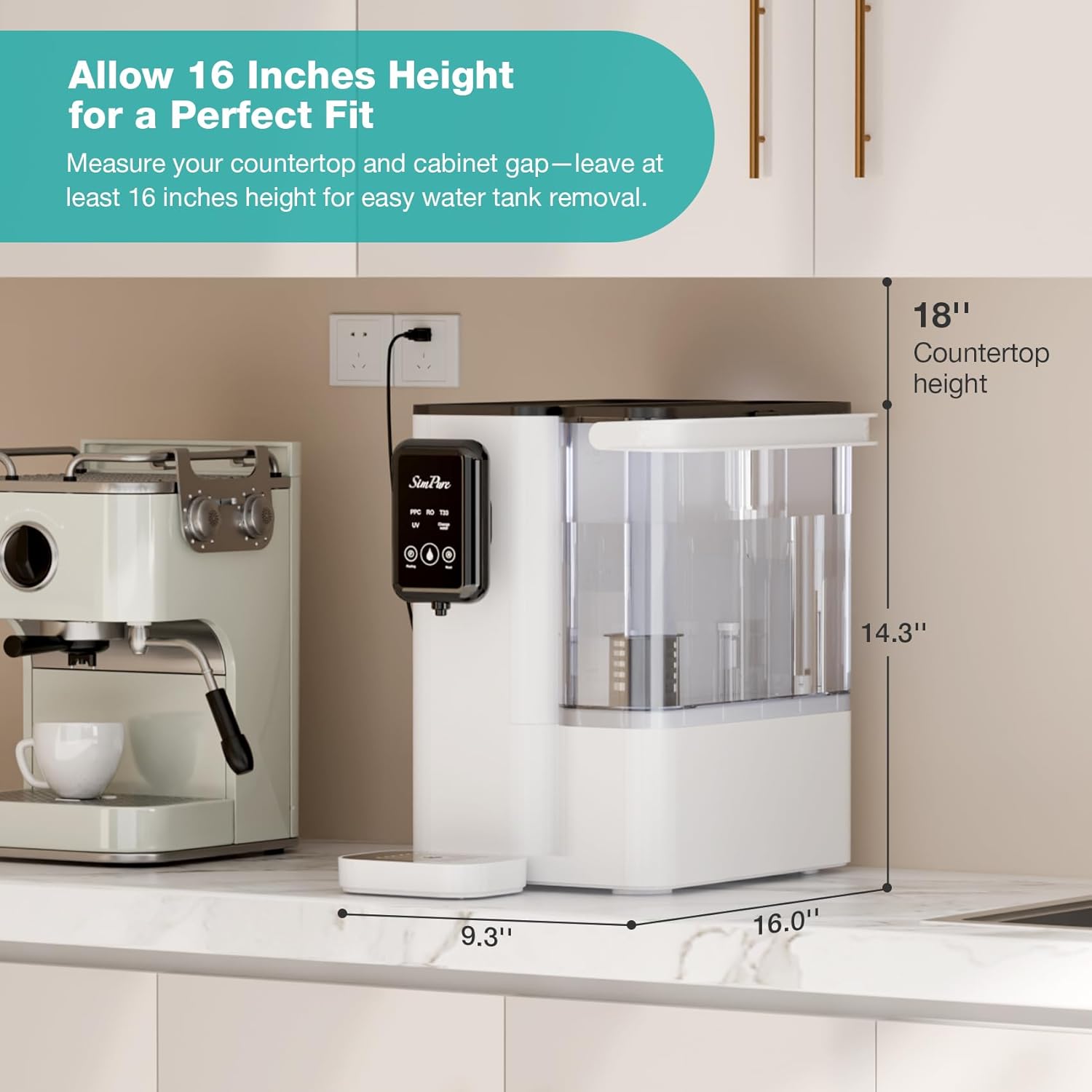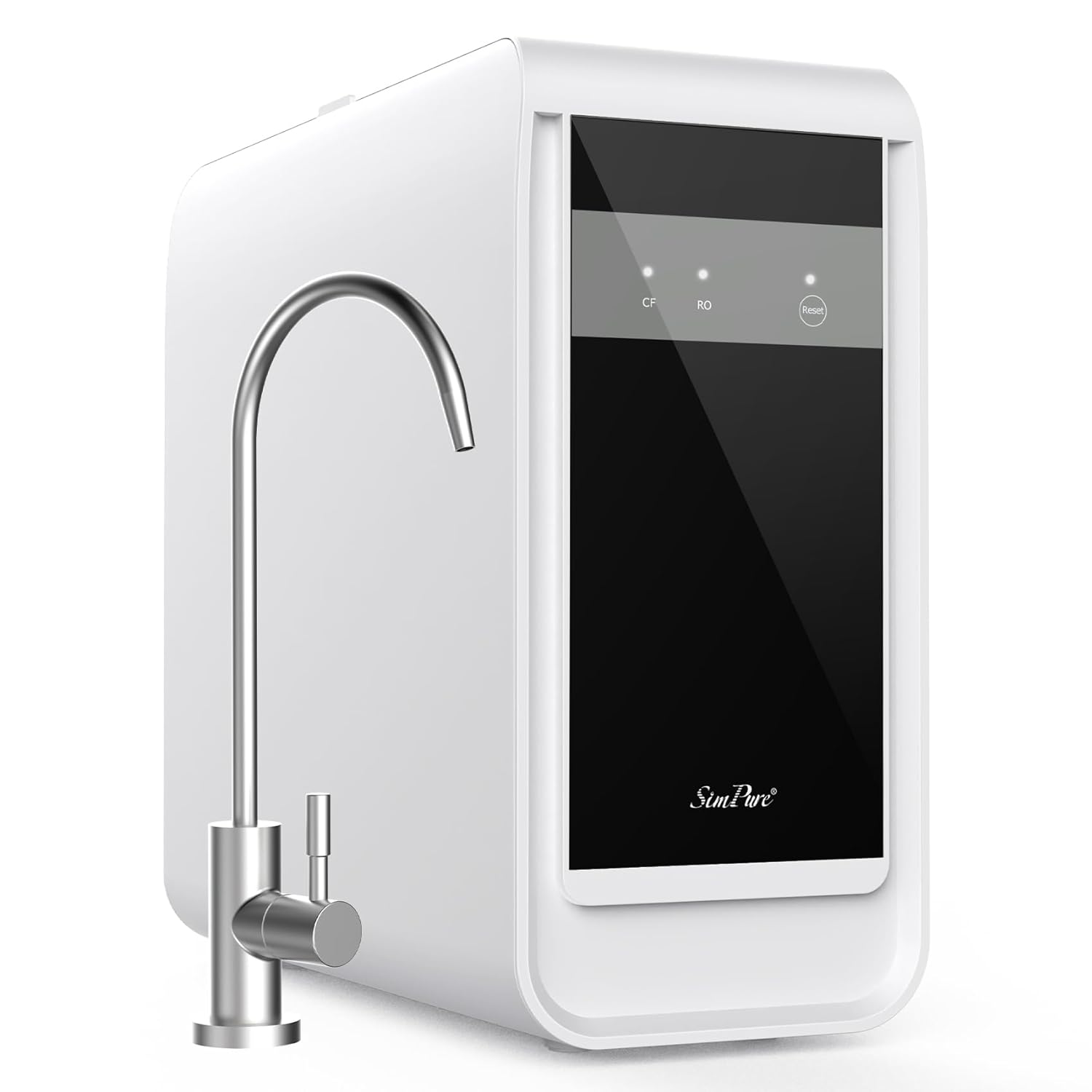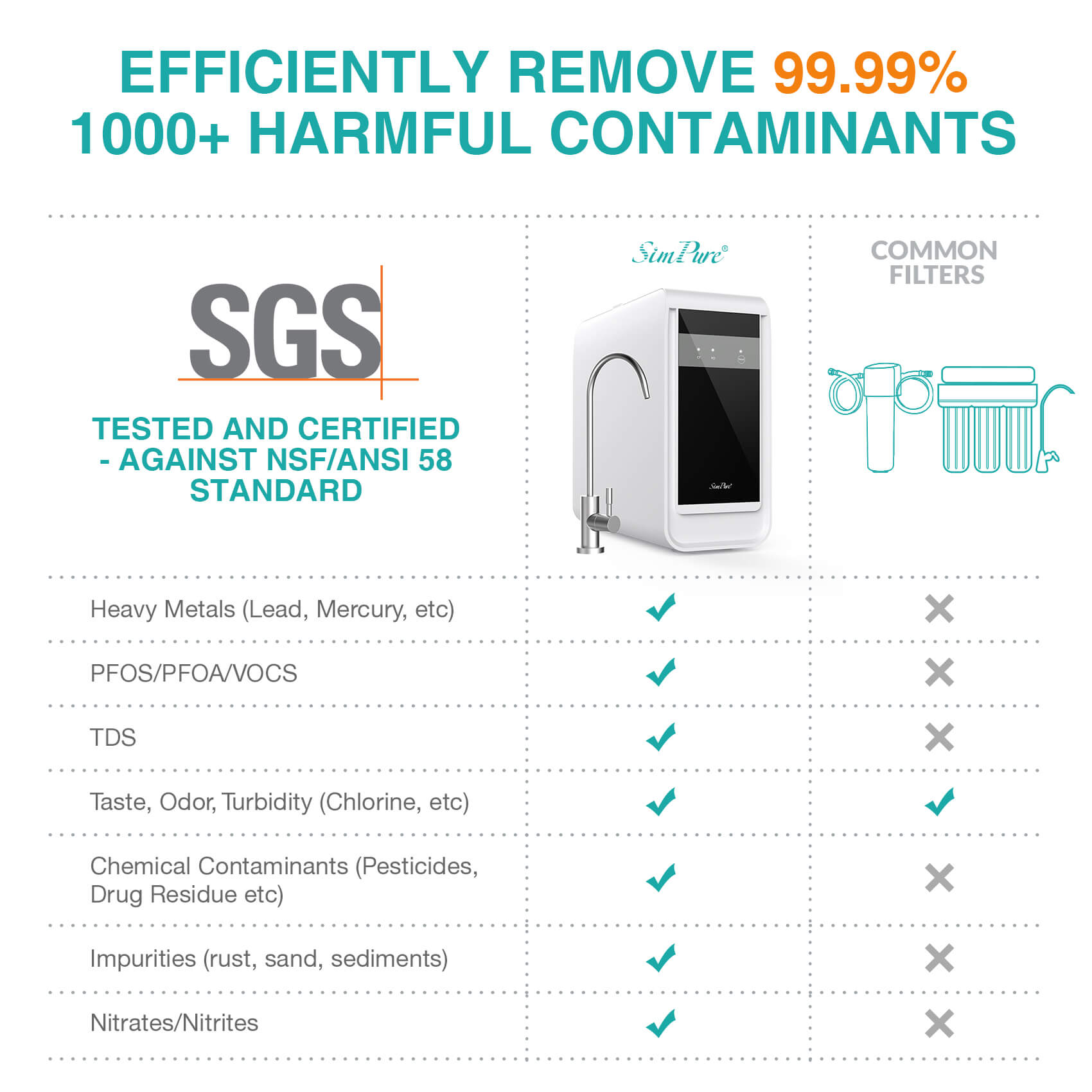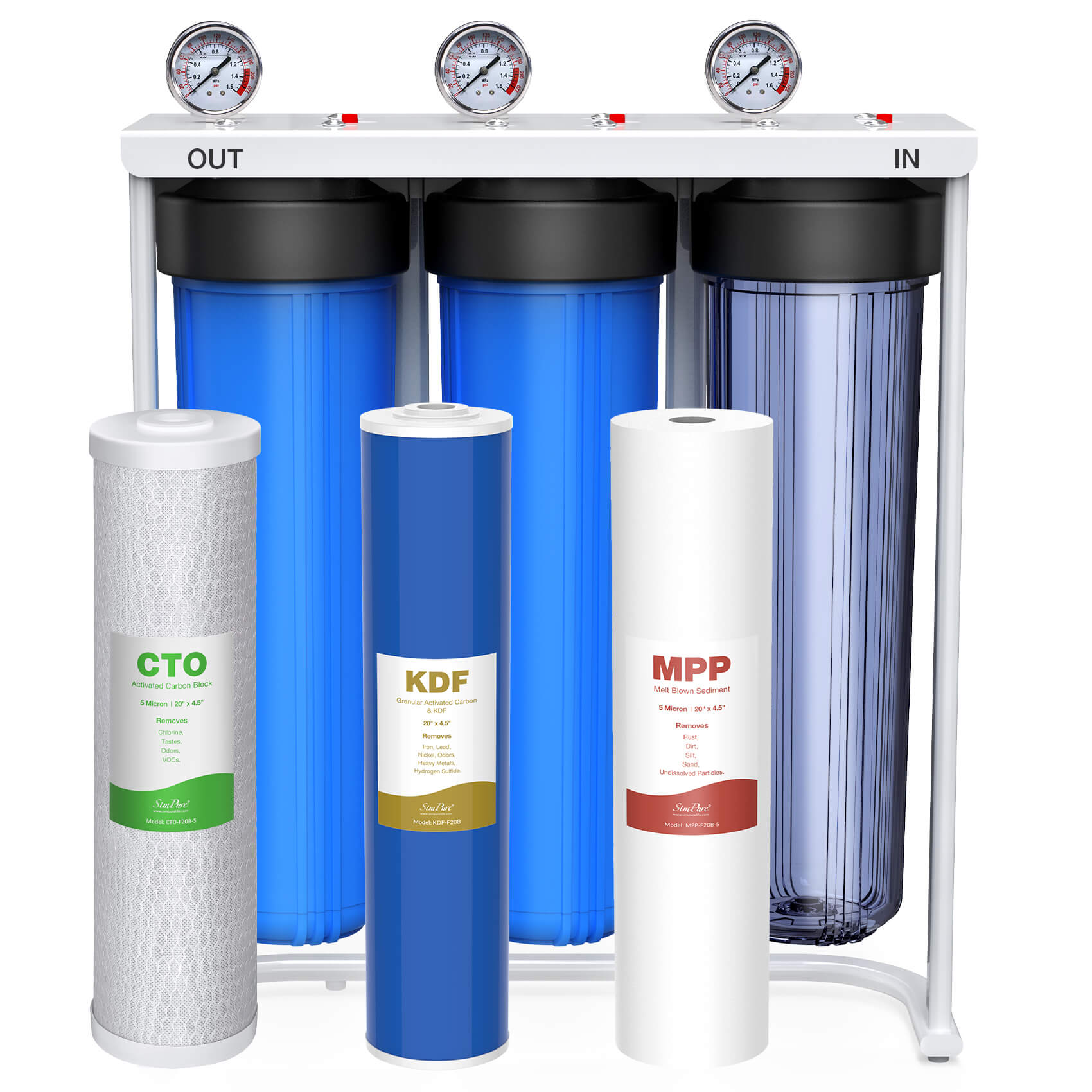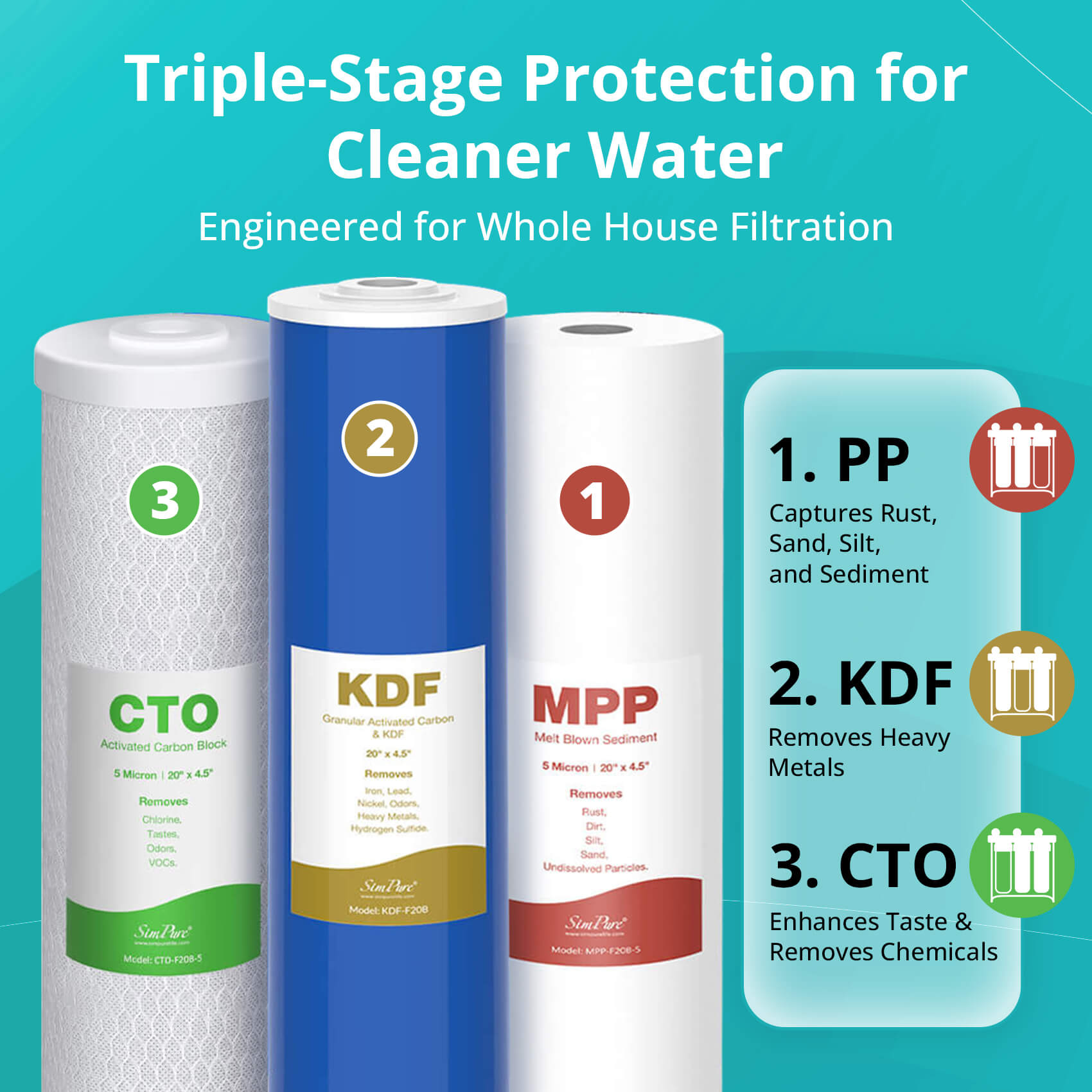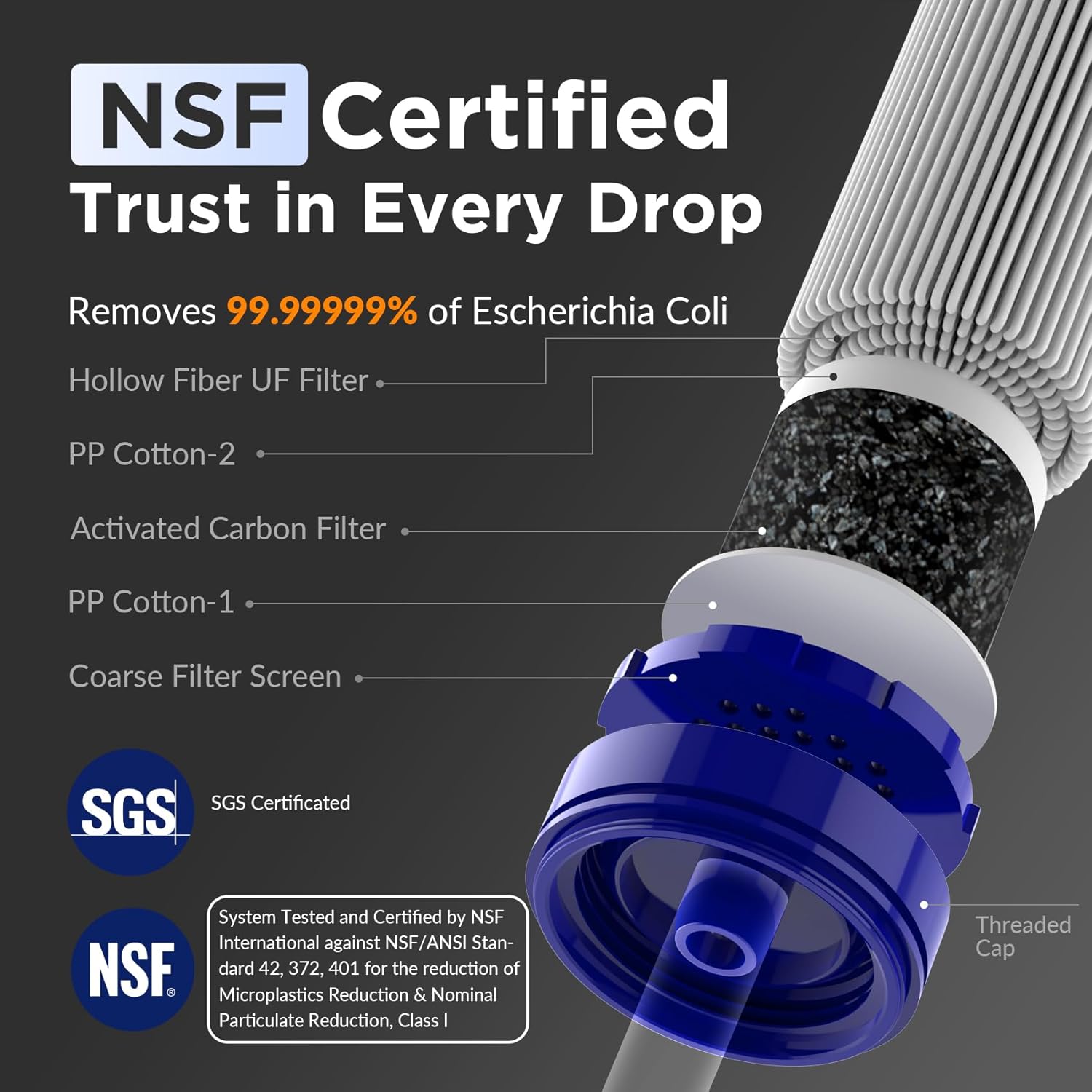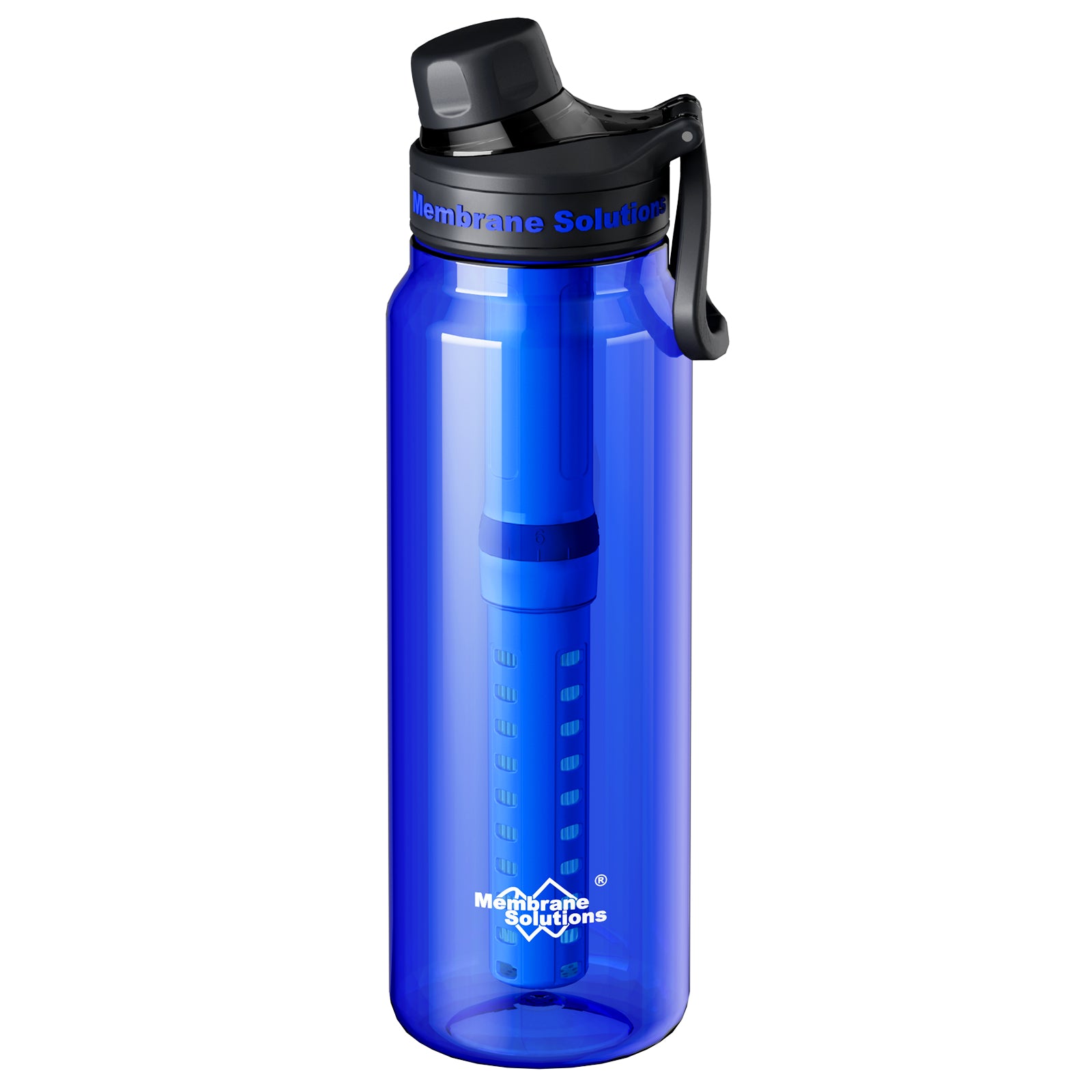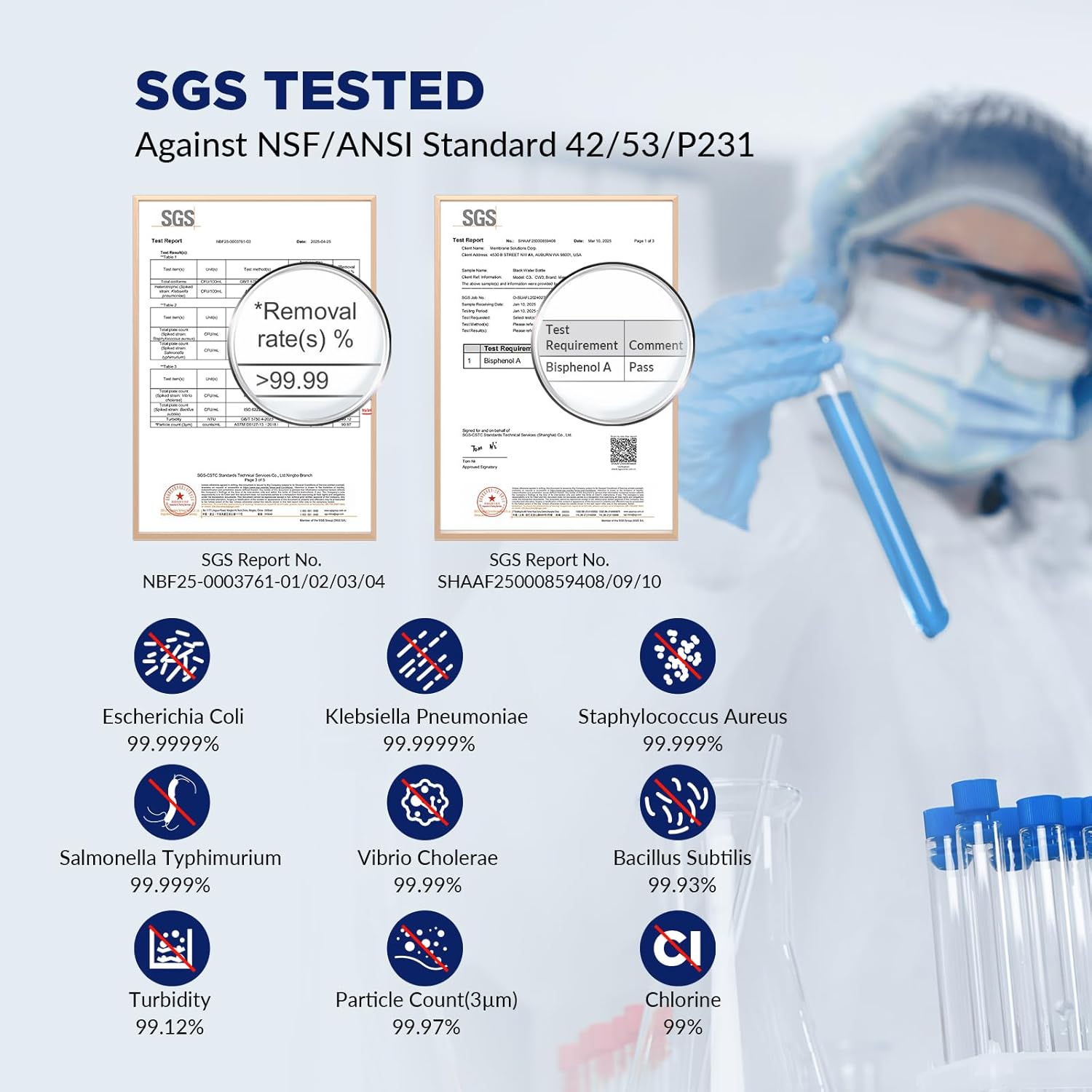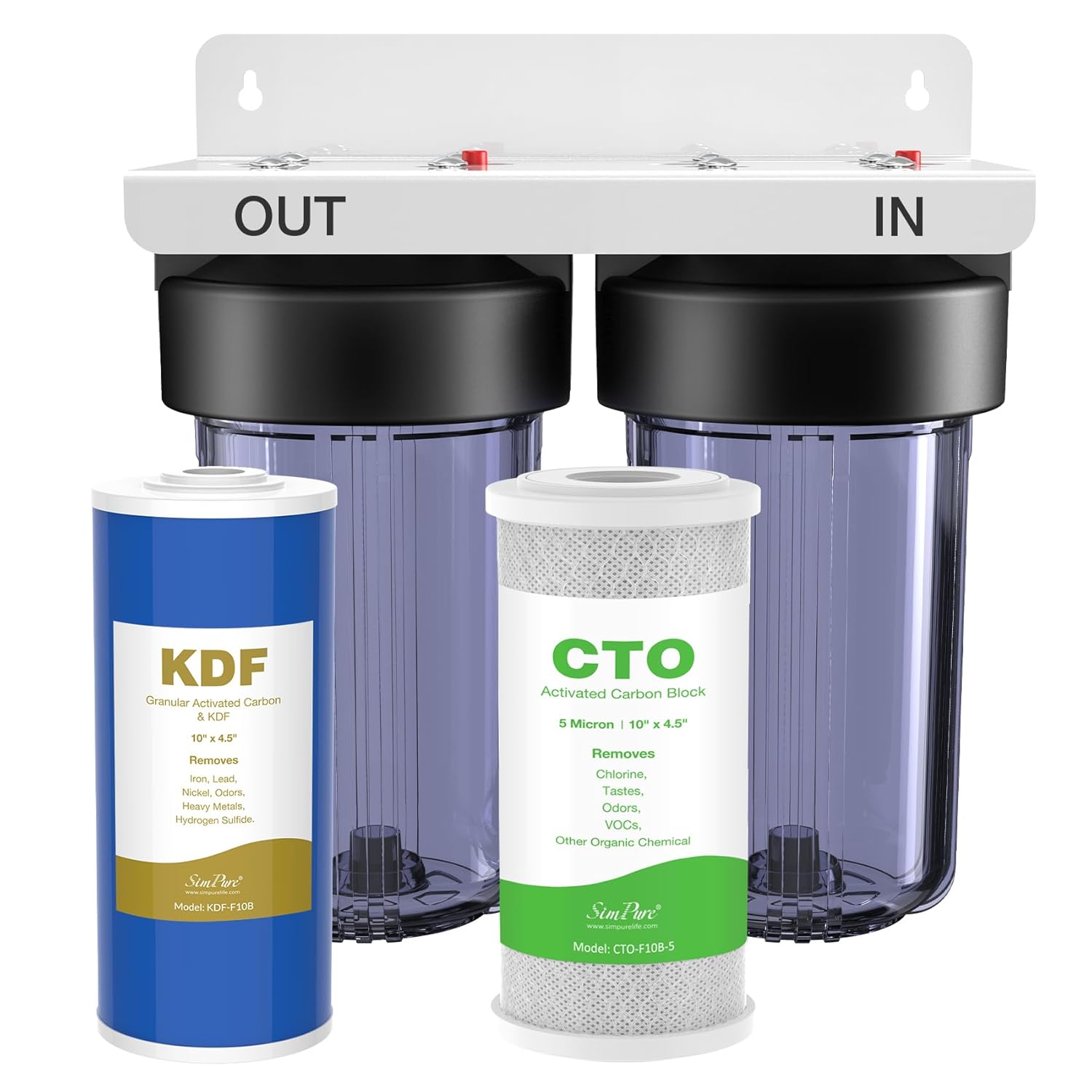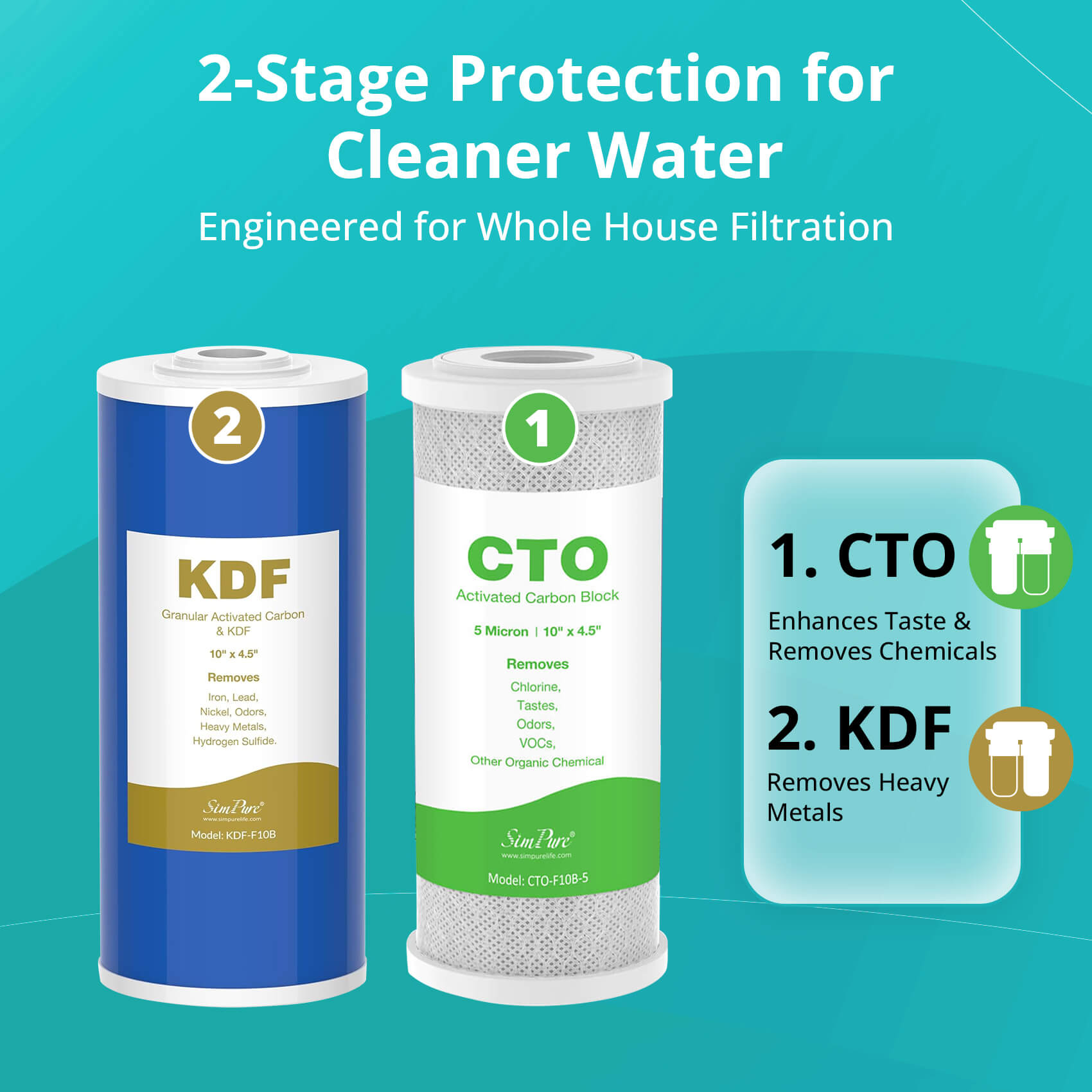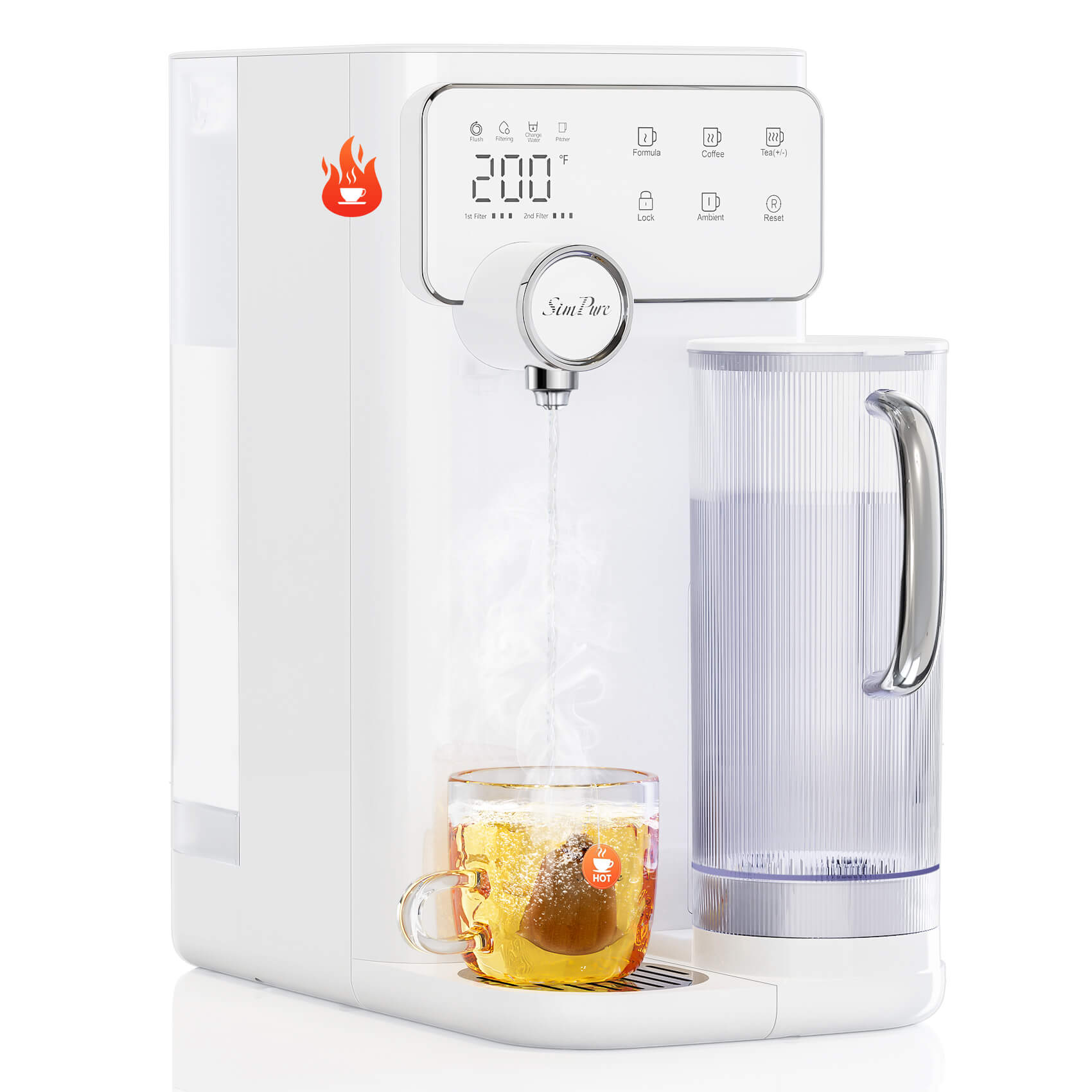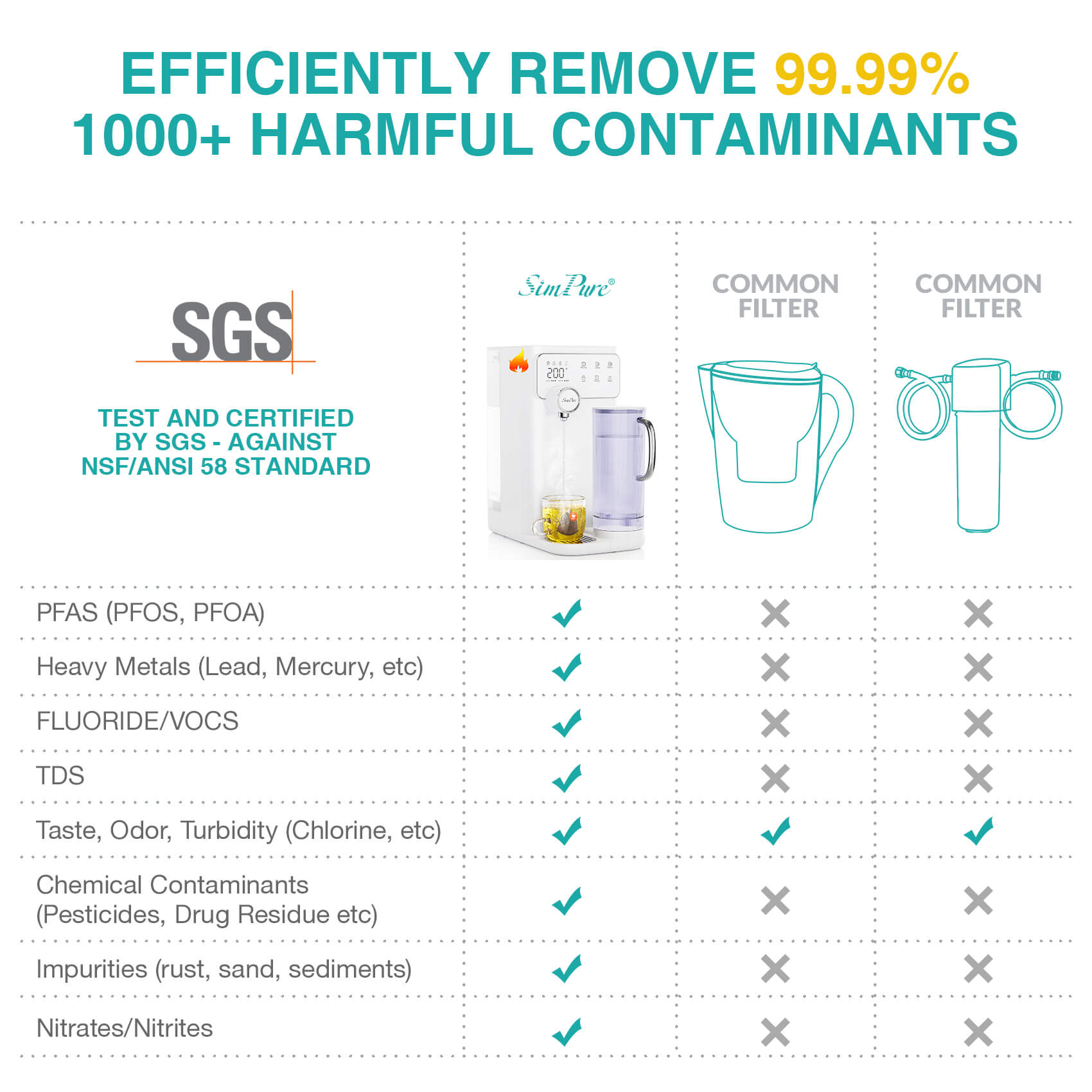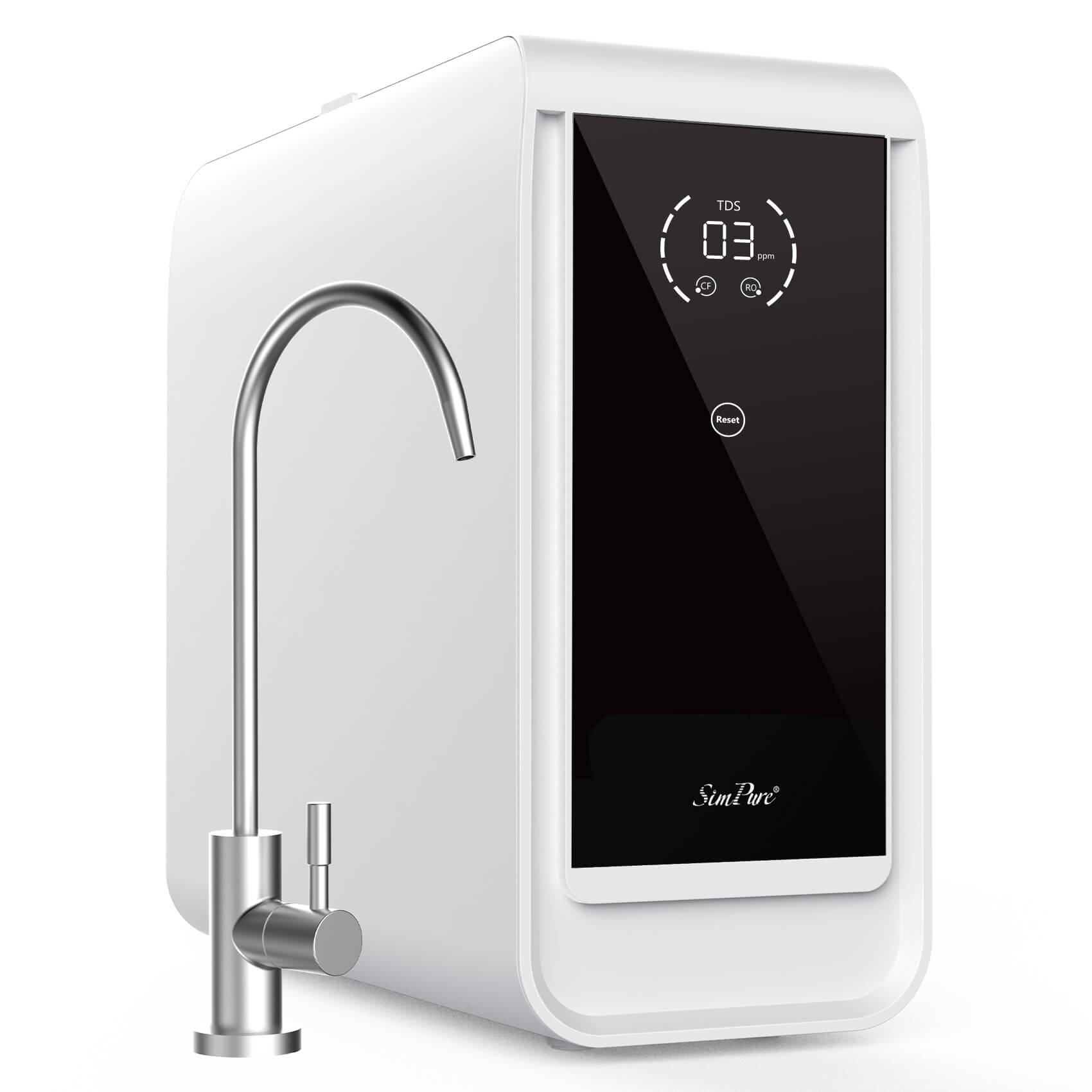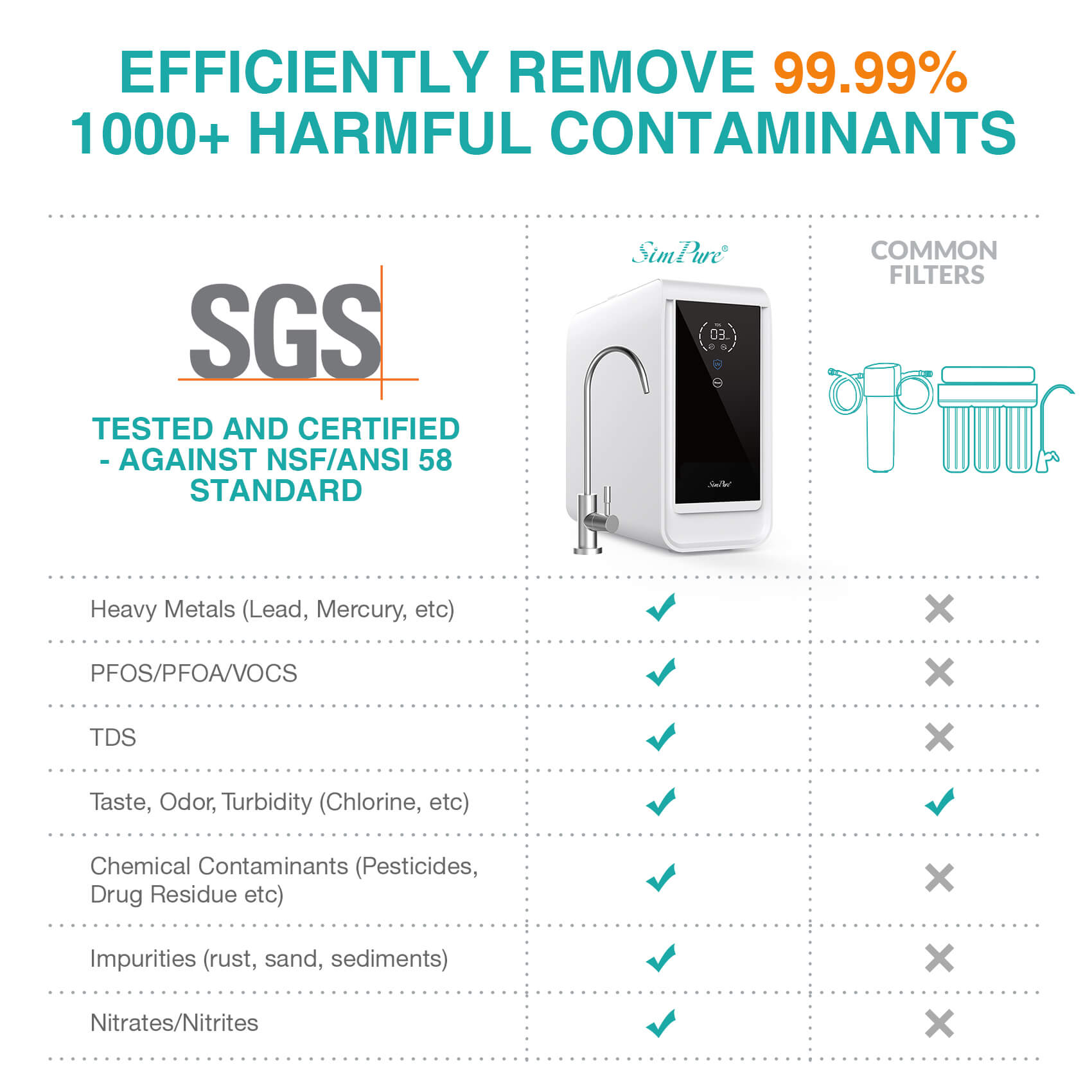Ensuring that we stay hydrated is crucial for our overall health and wellbeing. However, with the various options available, it can be challenging to decide which kind of water to drink. The filtered water vs tap water debate has been ongoing, with proponents for each side arguing for the superiority of their choice. In this article, we will delve into the topic of filtered water vs tap water and attempt to determine is filtered water better than tap water or not. So, if you're interested in finding out which is the best option for you, keep reading!
Filtered Water VS Tap Water: Pros and Cons

Filtered water and tap water are two types of water that are commonly consumed. Filtered water refers to water that has been treated to remove impurities and contaminants, while tap water comes directly from a public water supply and may contain various contaminants depending on the source. Here we will see the pros and cons of filtered water vs tap water.
1. Pros and Cons of Filtered Water
Pros:
- Purification: Water filters can remove impurities, bacteria, chlorine, and other contaminants from tap water, providing a cleaner and safer drinking water.
- Better taste: Filters can improve the taste and odor of tap water by removing chlorine and other chemicals.
- Health benefits: Filtered water can contain beneficial minerals that tap water may lack, such as calcium and magnesium.
- Environmental friendliness: Using a water filter reduces the number of plastic water bottles that end up in landfills, making it a more eco-friendly choice.
Cons:
- Cost: The initial cost of purchasing a water filter, and the ongoing cost of replacing filter cartridges can be expensive.
- Needs Maintenance: Water filters must be regularly cleaned or replaced to function effectively, adding another task to the household chores.
- Limited filtration: Some water filters may not remove all contaminants or bacteria, and their effectiveness may vary depending on the quality of the water source, and you may need to buy a whole water filter system to totally ensure the water is clean and safe to drink.
2. Pros and Cons of Tap Water
Pros:
- Convenience: Tap water is readily available and easily accessible, making it a convenient option for staying hydrated.
- Low cost: Tap water is generally cheaper than bottled or filtered water, making it an affordable choice for households.
- Regulated: Tap water is regulated by the Environmental Protection Agency (EPA) in the United States and other regulatory bodies around the world, ensuring that it meets safety standards and is safe to drink.
- Fluoridation: In some areas, tap water is fluoridated to help promote dental health.
Cons:
- Unpleasant Taste and odor: Tap water can have an unpleasant taste and odor due to the chlorine and other chemicals used to treat it.
- Contaminants: While tap water is generally safe to drink, it can contain contaminants, such as lead or other pollutants, that can be harmful to our health.
- Hard water: Tap water can also be hard, meaning it contains high levels of minerals such as calcium and magnesium, which can cause scaling in appliances and plumbing fixtures.
- Treatment chemicals: Tap water is often treated with chemicals such as chlorine and fluoride, which some people may be sensitive to or prefer to avoid.
- Distribution system: The distribution system for tap water can also contribute to its quality, as old pipes and infrastructure can introduce contaminants or reduce water pressure and flow.
So Is Filtered Water Better than Tap Water?
We have learned the pros and cons of purified water vs tap water, so is filtered water better than tap water? The answer to whether filtered water is better than tap water depends on various factors, including personal preference, location, and water source. While tap water is generally safe to drink, it can contain impurities, bacteria, chlorine, and other contaminants that can affect its taste, odor, and overall quality. On the other hand, filtered water has undergone additional processing to remove these unwanted elements, providing a cleaner and safer drinking water. So we have to say, you'd better choose filtered water.
Filtered water is often considered a better option than tap water because it undergoes additional filtration and treatment to remove impurities and contaminants. The filtration process can remove minerals such as chlorine, which can give water an unpleasant taste and odor. Additionally, the removal of other contaminants can lead to a cleaner and better-tasting drinking water.
What's more, filtered water can also be a healthier option than tap water when we discuss filtered water vs tap water. By removing impurities and contaminants, filtered water can reduce exposure to harmful substances, such as lead and pesticides, that can be present in tap water. Furthermore, some filters can retain beneficial minerals such as calcium and magnesium, which can be beneficial for overall health. Filtering tap water at home can also help reduce plastic waste and promote a more environmentally sustainable lifestyle.
3 Ways of Getting Filtered Water at Home
Since we have chosen filtered water out of filtered water vs tap water, here we offer three of the best methods for obtaining filtered water at home for you. Choose from water filtration pitchers, faucet water filters, or reverse osmosis systems, depending on your needs and preferences as below (Costs are arranged in ascending order):
1. Use a Water Filtering Pitcher to Get Purified Water
A water filtration pitcher is an affordable and straightforward way to purify water at home. These pitchers have a built-in filter that removes impurities and contaminants, such as chlorine, sediment, and heavy metals, from tap water. Simply fill the pitcher with tap water, and the filter will do the rest. Here we recommend you buy a SimPure water filter pitcher.
2. Install a Faucet Water Filter to Get Filtered Water
A faucet water filter is an attachment that fits onto the end of a faucet and filters water as it flows through. These filters use activated carbon to remove impurities and contaminants from tap water, improving the taste and quality of the water such as SimPure water filter for sink faucet.
3. Obtain Filtered Water By Purchasing a Reverse Osmosis System Water Filter
A reverse osmosis system is a more advanced and comprehensive way to purify water at home. These systems use a combination of filters and membranes to remove a wide range of contaminants, including bacteria, viruses, heavy metals, and chemicals, from tap water. Click the pictures below to get more water filters equipped with a reverse osmosis system.
After examining the pros and cons of filtered water vs tap water, it is clear that filtered water is the better choice for ensuring safe and clean drinking water. By using a water filter, we can remove these unwanted elements and improve the taste and quality of our water. Therefore, for those who are concerned about their health and the environment, filtered water is the clear winner. So, next time you reach for a glass of water, consider investing in a quality water filter for the best possible hydration.


